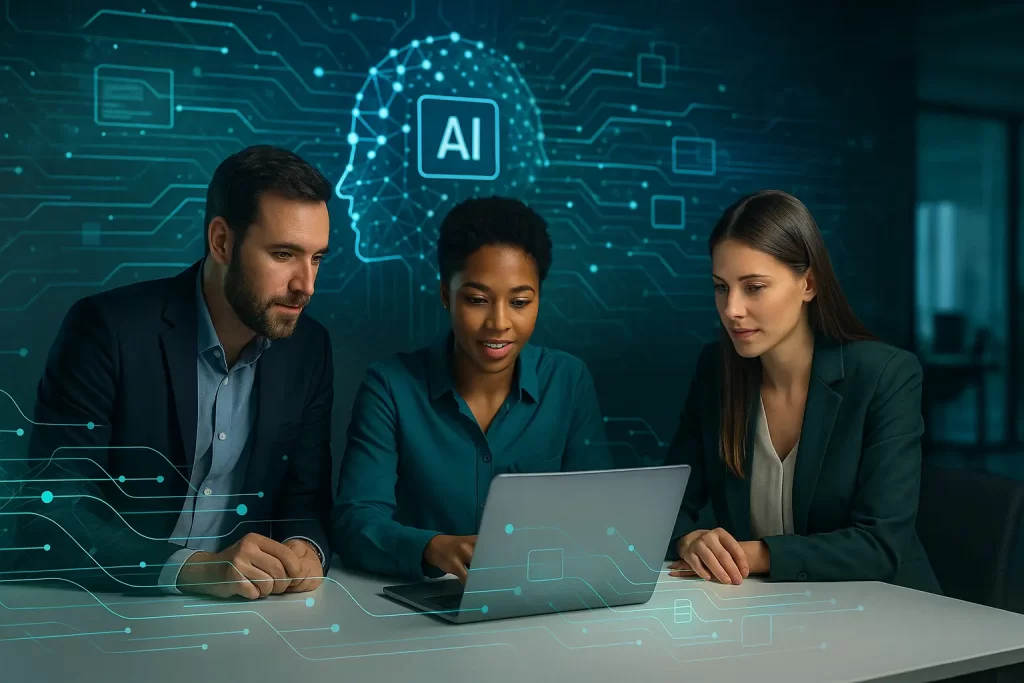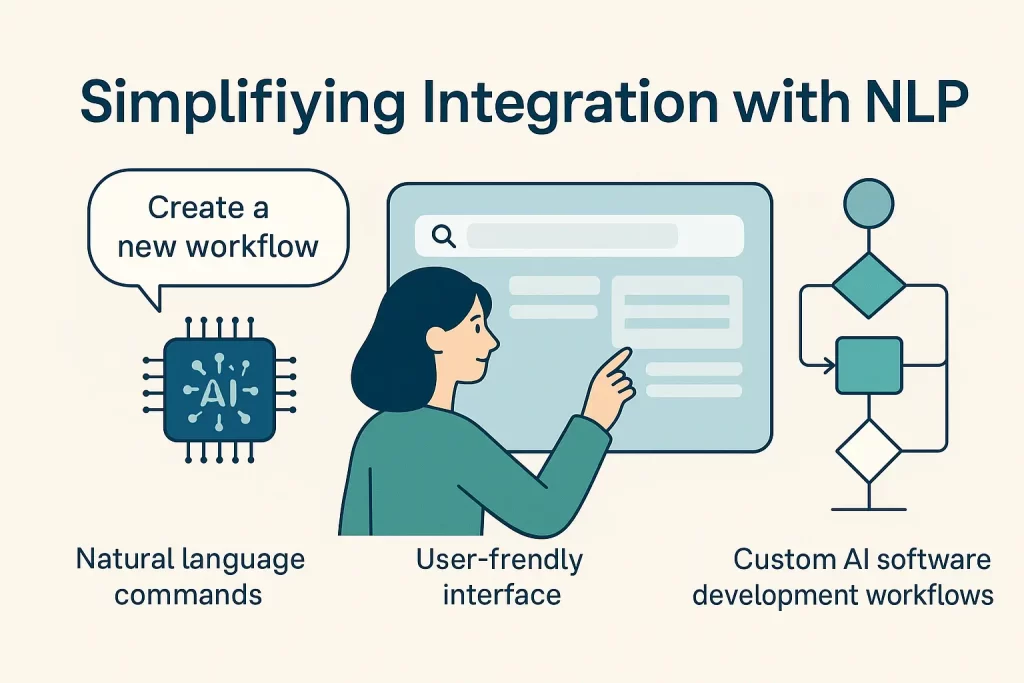The Role of Generative AI in Transforming Enterprise Integration
Table of Contents
- Streamlining Data Mapping and Transformation
- Simplifying Integration with Natural Language Processing (NLP)
- Adapting to Change in Real-Time
- Accelerating Development with Automated Code Generation
- Enhancing Data Synchronization and Replication
- Detecting Anomalies and Managing Errors
- Gaining Deeper Insights with Semantic Understanding
- Fostering Collaboration with Federated Learning
- Your AI-Powered Future Starts Here

In a business world that’s constantly shifting gears, staying ahead means more than just keeping up – it means syncing up. Companies today are racing to streamline their operations and pivot fast when the market moves. The secret weapon? Enterprise integration. It’s the digital glue that holds your systems, data, and processes together so your team isn’t stuck in silos. But here’s the catch: the old plug-and-play methods can’t keep up with the tidal wave of data or the demand for instant insights. It’s time to rethink how everything connects.
Generative AI for enterprise integration is emerging as a game-changer, offering innovative solutions to overcome these challenges. By automating complex tasks, adapting to dynamic environments, and fostering innovation, AI consulting for enterprise integration is reshaping how businesses approach connectivity. According to a Salesforce survey, 86% of IT leaders anticipate that generative AI will soon play a significant role in their organizations, with 67% prioritizing its adoption within the next 18 months.
Let’s explore how generative AI is revolutionizing enterprise integration:
Streamlining Data Mapping and Transformation
Integrating diverse data sources has traditionally required extensive manual effort, from coding to mapping. Generative AI simplifies this process by automating data mapping and transformation through advanced algorithms. This not only accelerates integration projects but also enhances operational efficiency, allowing businesses to focus on strategic goals.
Integrating diverse data sources has traditionally required extensive manual effort, from coding to mapping. Generative AI-powered data integration simplifies this process by automating data mapping and transformation using machine learning integration models. This not only accelerates projects but also enhances operational efficiency, allowing businesses to focus on strategic goals.
Simplifying Integration with Natural Language Processing (NLP)
Natural language integration tools powered by generative AI enable users to interact with integration platforms using plain language commands. This intuitive interface eliminates the need for deep technical skills, empowering business users to build and manage custom AI software development workflows efficiently.

Adapting to Change in Real-Time
In a fast-paced business environment, adaptability is critical. AI-driven integration platforms automatically adjust to changes in data formats, business logic, or system behaviors. Whether it’s cloud migration and integration or updating API connections, this dynamic approach ensures ongoing success—even in unpredictable scenarios.
Accelerating Development with Automated Code Generation
Speed is a critical factor in today’s competitive market. Generative AI accelerates the development of connectors and APIs through automated code generation, reducing time-to-market for API development for system integration. This enables businesses to bring custom integrations to market faster, fostering innovation and maintaining a competitive edge.
Enhancing Data Synchronization and Replication
By analyzing historical data patterns, generative AI predicts future data access needs and facilitates proactive synchronization and replication across systems. This ensures that critical data is always available, enabling faster decision-making and improved business outcomes.
Detecting Anomalies and Managing Errors
Reliability is paramount in data-driven operations. Generative AI monitors integration logs and data streams to identify anomalies and recommend corrective actions in real time. This enhances the reliability, performance, and fault tolerance of enterprise integrations.

Gaining Deeper Insights with Semantic Understanding
Generative AI extracts semantic insights from unstructured data, providing businesses with a clearer understanding of their processes and workflows. This contextual knowledge enables the development of integration solutions that align with organizational objectives and drive success.
Fostering Collaboration with Federated Learning
In an interconnected world, collaboration is essential. Generative AI techniques like federated learning allow organizations to train AI models collaboratively using decentralized data, all while maintaining data privacy and security. This approach facilitates cross-enterprise integration, and advanced techniques such as robotic process automation integration opening doors for collective growth.
Your AI-Powered Future Starts Here
Generative AI is changing the rules of the game—and Plego’s AI-powered integrations are leading the charge. At Plego, we’re helping businesses tap into this shift to streamline operations, connect data, and spark real innovation.
Ready to unlock what AI can do for your business? Let’s make it happen.
